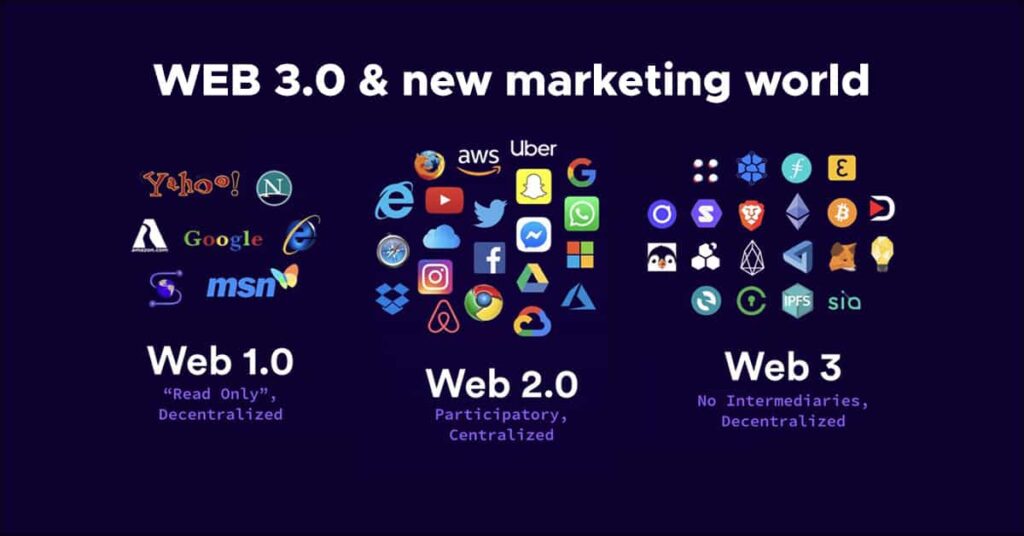Introduction
As the digital landscape continues to evolve, the emergence of Web 3.0 promises a new era of decentralized, interconnected, and user-centric internet experiences. Web 3.0 envisions a future world where blockchain technology, smart contracts, and decentralized applications (dApps) are the norm, transforming traditional business models and the legal landscape. In this article, we will explore the practical implications of Web 3.0 on the legal framework and the crucial role lawyers will play in this transformative journey.

Understanding Web 3.0
Web 3.0, also known as the Semantic Web, is characterized by its decentralized nature and its focus on users’ privacy and data ownership. Unlike Web 2.0, where data is primarily controlled by centralized platforms, Web 3.0 leverages blockchain technology to ensure transparency, security, and autonomy. The blockchain is a distributed ledger that records and validates transactions across a network of computers, eliminating the need for intermediaries.
Challenges and Opportunities
As businesses embrace Web 3.0 technologies, novel legal challenges and opportunities arise. Some key areas include:
- Smart Contracts and Self-Executing Agreements:
Smart contracts are self-executing contracts with the terms directly written into code. These contracts automatically execute when predefined conditions are met. Lawyers will play a vital role in drafting smart contracts to ensure they comply with existing legal frameworks and avoid ambiguity. - Decentralized Autonomous Organizations (DAOs):
DAOs are organizations governed by code and community consensus rather than a central authority. Lawyers will be crucial in establishing legal structures for DAOs, addressing issues like liability, taxation, and regulatory compliance. - Tokenization and Digital Assets:
Tokenization allows the representation of real-world assets as digital tokens on the blockchain. Lawyers will need to facilitate compliant token offerings, ensure regulatory compliance, and address issues related to ownership and intellectual property rights. - Dispute Resolution and Smart Contract Audits:
In a decentralized ecosystem, dispute resolution mechanisms and smart contract audits become essential. Lawyers will play a crucial role in developing these frameworks to ensure fairness, security, and transparency. - Data Privacy and Ownership:
Web 3.0 puts users in control of their data, allowing them to grant or revoke access as they see fit. Legal professionals must navigate evolving data privacy regulations to safeguard user rights and protect businesses from potential legal disputes.
Legal Framework and Regulations
Web 3.0 presents a unique challenge for governments and regulatory bodies worldwide. As technologies evolve rapidly, existing laws may lag behind, leading to legal uncertainty and potential risks for businesses and users. To address this, lawyers will need to work closely with policymakers to develop a robust legal framework that promotes innovation while safeguarding public interest.
Collaboration between Lawyers and Technologists

The future world of business will require lawyers to work hand in hand with technologists and developers. Understanding the intricacies of blockchain, smart contracts, and decentralized applications will be essential for lawyers to provide accurate legal advice and draft contracts that align with the technology’s capabilities.
Education and Specialization
As the legal landscape evolves, lawyers will need to upskill and specialize in Web 3.0 and blockchain technology. Continuous education and certifications will be crucial for lawyers to stay relevant and provide cutting-edge legal services.
Conclusion
Web 3.0 presents a transformative vision of the future world of business, underpinned by blockchain technology and decentralized principles. Embracing this paradigm shift will require legal professionals to adapt, innovate, and collaborate with technologists. By addressing the unique legal challenges and opportunities of Web 3.0, lawyers can play a pivotal role in shaping a future world where decentralized, user-centric, and secure interactions are the norm.


